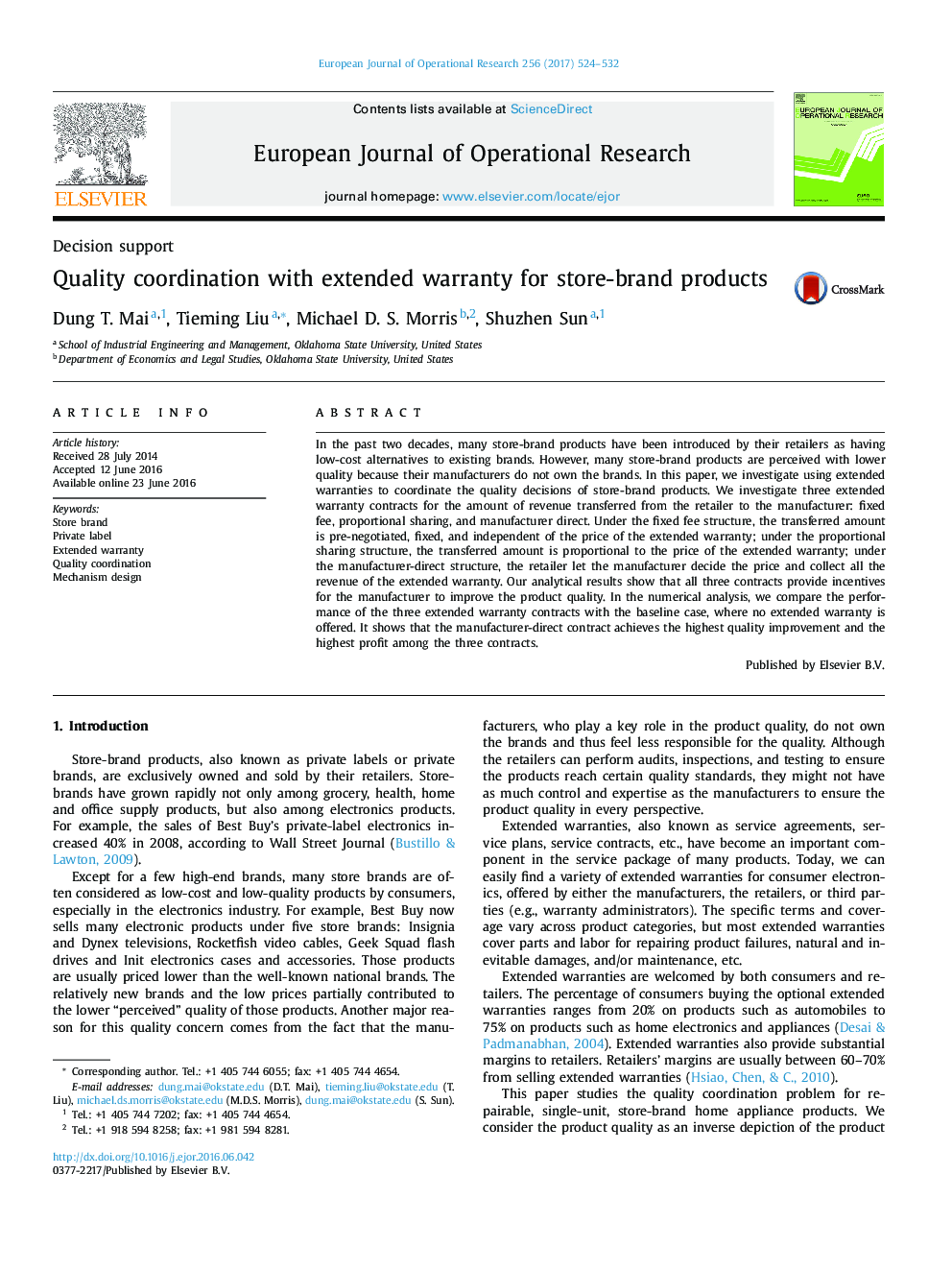| Article ID | Journal | Published Year | Pages | File Type |
|---|---|---|---|---|
| 4960225 | European Journal of Operational Research | 2017 | 9 Pages |
Abstract
In the past two decades, many store-brand products have been introduced by their retailers as having low-cost alternatives to existing brands. However, many store-brand products are perceived with lower quality because their manufacturers do not own the brands. In this paper, we investigate using extended warranties to coordinate the quality decisions of store-brand products. We investigate three extended warranty contracts for the amount of revenue transferred from the retailer to the manufacturer: fixed fee, proportional sharing, and manufacturer direct. Under the fixed fee structure, the transferred amount is pre-negotiated, fixed, and independent of the price of the extended warranty; under the proportional sharing structure, the transferred amount is proportional to the price of the extended warranty; under the manufacturer-direct structure, the retailer let the manufacturer decide the price and collect all the revenue of the extended warranty. Our analytical results show that all three contracts provide incentives for the manufacturer to improve the product quality. In the numerical analysis, we compare the performance of the three extended warranty contracts with the baseline case, where no extended warranty is offered. It shows that the manufacturer-direct contract achieves the highest quality improvement and the highest profit among the three contracts.
Related Topics
Physical Sciences and Engineering
Computer Science
Computer Science (General)
Authors
Dung T. Mai, Tieming Liu, Michael D.S. Morris, Shuzhen Sun,
